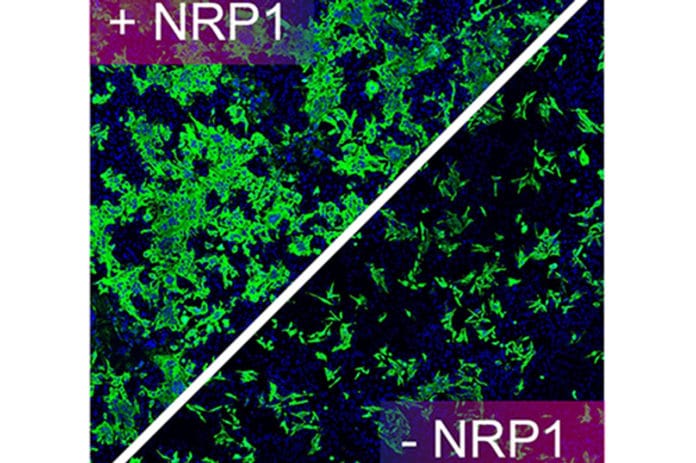SARS-CoV-2 is the coronavirus responsible for the current COVID-19 pandemic. Until now, significant questions have remained unanswered as to why SARS-CoV-2 readily infects organs outside of the respiratory system, such as the brain and heart.
The virus uses the viral spike (S) protein for host cell attachment and entry. Once attached, the virus invades the cell then replicates multiple copies of itself. The replicated viruses are then released, leading to the transmission of SARS-CoV-2.
Understanding the cycle by which the ‘Spike’ protein recognizes human cells is key to improving antiviral therapies and vaccines to treat COVID-19.
In a breakthrough, an international team of scientists, led by the University of Bristol, has identified what makes SARS-CoV-2 highly infectious and spread rapidly in human cells. Using multiple approaches, scientists discovered that SARS-CoV-2 recognizes a protein called neuropilin-1 on human cells’ surface to facilitate viral infection.
Dr. Yohei Yamauchi, Associate Professor and virologist from the School of Cellular and Molecular Medicine, said, “In looking at the sequence of the SARS-CoV-2 Spike protein we were struck by the presence of a small sequence of amino acids that appeared to mimic a protein sequence found in human proteins which interact with neuropilin-1. This led us to propose a simple hypothesis: could the Spike protein of SARS-CoV-2 associate with neuropilin-1 to aid human cells’ viral infection? Excitingly, in applying a range of structural and biochemical approaches, we have been able to establish that the Spike protein of SARS-CoV-2 does indeed bind to neuropilin-1.”
“Once we had established that the Spike protein bound to neuropilin-1, we were able to show that the interaction serves to enhance SARS-CoV-2 invasion of human cells grown in cell culture. Importantly, by using monoclonal antibodies – lab-created proteins that resemble naturally occurring antibodies – or a selective drug that blocks the interaction, we have been able to reduce SARS-CoV-2’s ability to infect human cells. This serves to highlight the potential therapeutic value of our discovery in the fight against COVID-19.”
In another study by the Technical University of Munich, Germany, and the University of Helsinki, Finland, scientists discovered that neuropilin-1 facilitates SARS-CoV-2 cell entry and infectivity.
Scientists of this new study noted, “To defeat COVID-19 we will be relying on an effective vaccine and an arsenal of anti-viral therapeutics. Our discovery of the binding of the SARS-CoV-2 Spike to neuropilin-1 and its importance for viral infectivity provides a previously unrecognized avenue for anti-viral therapies to curb the current COVID-19 pandemic.”
The study was funded by grants from the European Research Council, MRC, Wellcome Trust, Lister Institute of Preventive Medicine, Elizabeth Blackwell Institute, and Swiss National Science Foundation.
Journal Reference:
- Simonetti, Klein et al. Neuropilin-1 is a host factor for SARS-CoV-2 infection. DOI: 10.1126/science.abd3072
